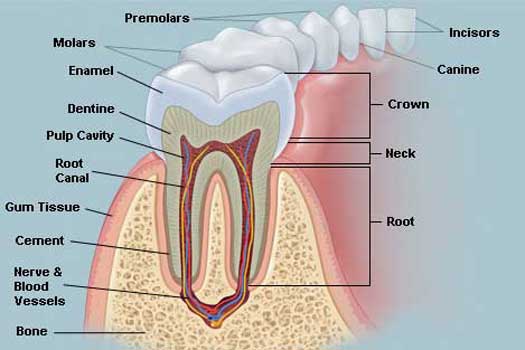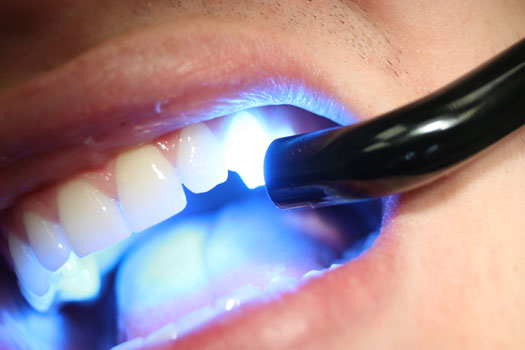
Know Your Tongue
The tongue is a muscular organ in the mouth. The tongue is covered with moist, pink tissue called mucosa. Tiny bumps called papillae give the tongue its rough texture. Thousands of taste buds cover the surfaces of the papillae. Taste buds are collections of nerve-like cells that connect to nerves running into the brain. The tongue is anchored to the mouth by webs of tough tissue and mucosa. The tether holding down the front of the tongue is called the frenum. In the back of the mouth, the tongue is anchored into the hyoid bone. The tongue is vital for chewing and swallowing food, as well as for speech.
The four common tastes are sweet, sour, bitter, and salty. The tongue has many nerves that help detect and transmit taste signals to the brain. Because of this, all parts of the tongue can detect these four common tastes.
Tongue Conditions
Thrush (candidiasis): Candida albicans (a yeast) grows over the surface of the mouth and tongue. Thrush can occur in almost anyone, but it occurs more often in people taking steroids or with suppressed immune systems, the very young, and the elderly.
Oral cancer: A growth or ulcer appears on the tongue and grows steadily. Oral cancer is more common in people who smoke and/or drink alcohol heavily.
Macroglossia (big tongue): This can be broken down into various categories based on the cause. These include congenital, inflammatory, traumatic, cancerous, and metabolic causes. Thyroid disease, lymphangiomas, and congenital abnormalities are among some of the causes of an enlarged tongue.
Geographic tongue: Ridges and colored spots migrate over the surface of the tongue, periodically changing its appearance. Geographic tongue is a harmless condition.
Burning mouth/burning tongue syndrome: a relatively common problem. The tongue feels burned or scalded, or strange tastes or sensations develop. Apparently harmless, burning mouth syndrome may be caused by a mild nerve problem.
Atrophic glossitis (bald tongue): The tongue loses its bumpy texture, becoming smooth. Sometimes this is due to anemia or a B vitamin deficiency.
Canker sores (aphthous ulcers): Small, painful ulcers appear periodically on the tongue or mouth. A relatively common condition, the cause of canker sores is unknown; they are unrelated to the cold sores caused by herpes viruses. Canker sores are not contagious.
Oral leukoplakia: White patches appear on the tongue that can’t be scraped off. Leukoplakia may be benign, or it can progress to oral cancer.
Hairy tongue: Papillae can overgrow the surface of the tongue, giving it a white or black appearance. Scraping off the papillae corrects this harmless condition.
Herpes stomatitis: The herpes virus can uncommonly cause cold sores on the tongue. Herpes virus cold sores are usually on the lip.
Lichen planus: A harmless condition that can affect the skin or the mouth. The cause is unknown; however, it is believed to be caused by the immune system attacking the skin and lining of the mouth.








